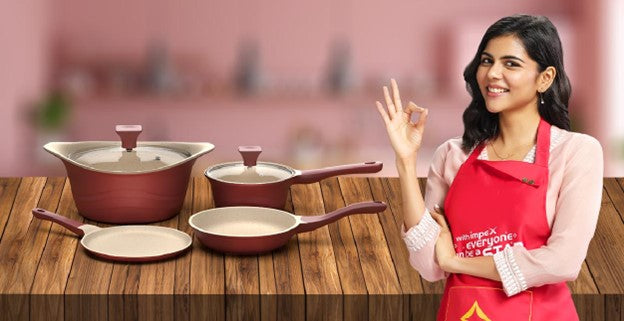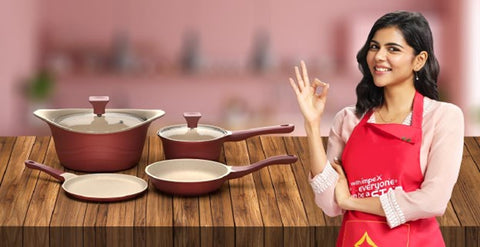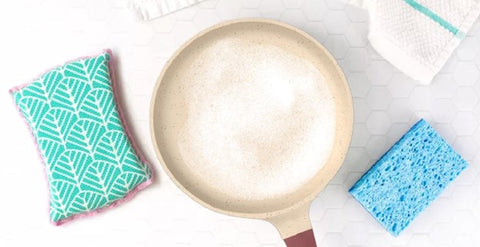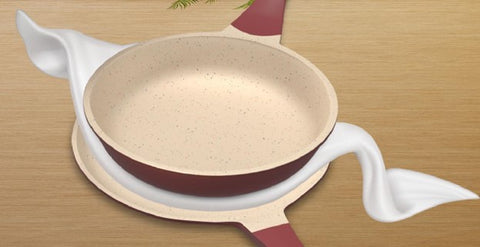

By Riyas Ali
Think of healthy cooking. The first thing that pops into mind might be non-stick cookware. They need less oil, are easy to clean, versatile, and aesthetically pleasing. Whatever your reasons may be to buy them, consider these things as your first points of reference to extend the life of your workhorse in the kitchen. There are, of course, a lot more to care for your dear kitchen companions, but try these hacks for a great start. We are listing some little known tricks and some widely-known rules that go a long way towards helping the nonstick cookware go the extra mile.
Season with cooking oil
This may seem like an opening ritual before the actual show begins. If your pan is new, it is advisable to wash it first, wipe dry and season it with cooking oil. After this, you should heat the nonstick pan for about one minute before mopping the oil content with a paper towel. Besides giving it a longer lifespan, this removes any harmful elements or residue left on the pan during manufacturing.
Love your pans

We care for everything that we love. Start loving your cookware and be gentle with them. Use utensils that are non-abrasive, so they won’t damage the coating. Scratches can lead to stuck-on food which makes cleaning difficult. Avoid hard scraping as that will turn the surface even more rough, eventually reducing the lifespan. Ensure that you are using soft cooking utensils such as wooden spoons and rubber/heatproof spatulas.
Avoid high heat

Meant for cooking at medium temperatures, a non-stick pan will degrade soon if used on high heat. Always use cast irons at high temperature and reserve their nonstick cousins for more mild cooking. Hard anodized non-stick cookwares are more capable of withstanding high heat. However, over time signs of degrading appear on these pans too due to constant cooking on high heat. It is ideal to keep the cookware away from high heat as much as possible.
Keep off acidic food
Just like high-heat recipes can damage the nonstick coating, so too can some acidic ingredients such as lemon, tomato, and lime. These items create problems for the coating when heated at high temperatures regularly. While occasional cooking with acidic food may be safe, extended use of them could cut short the lifespan of nonstick cookware.
Clean with care

After some good moments of cooking and eating comes the not-so-great part of meal-making: washing. It is a section we normally keep to the end and do away with it without much thought. Nonstick pans should not be treated like any other cookware when it comes to dishwashing, and using abrasive material to remove any burnt oil spots will leave scratches on the pan. Using soft sponges with warm soapy water will take care of the pan just right. Mix some baking soda with warm water if your cooking has left burnt oil spots. Ensure the pan is wiped dry before taking it for storage.
Store it properly

Maintaining the nonstick cookware doesn’t end with just cooking and cleaning thereafter. Storing them right too goes a long way in extending their life. Ensure that you use a shelf liner or towel between pans if you are stacking them. This will protect the nonstick coating from getting scratched by the bottom of the other pans on top of it. Give the treatments your cookware deserves and it will last a lifetime. By doing this, you will save valuable time, effort and money, ensuring you have nonstick cookware that satisfies your crunchy cravings for a long time.
Check some Nonstick cookware. Click here
Share
